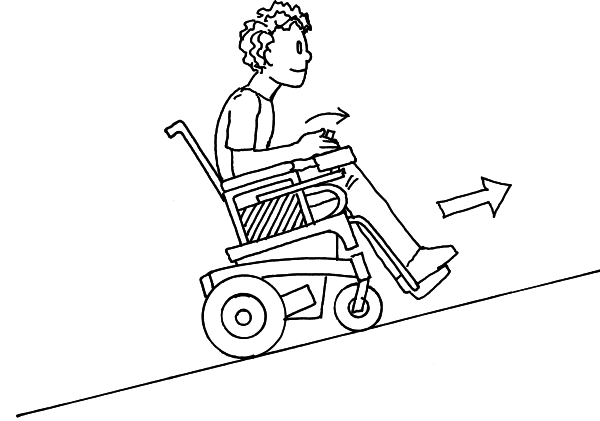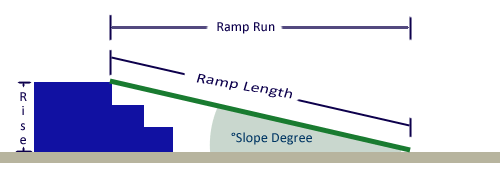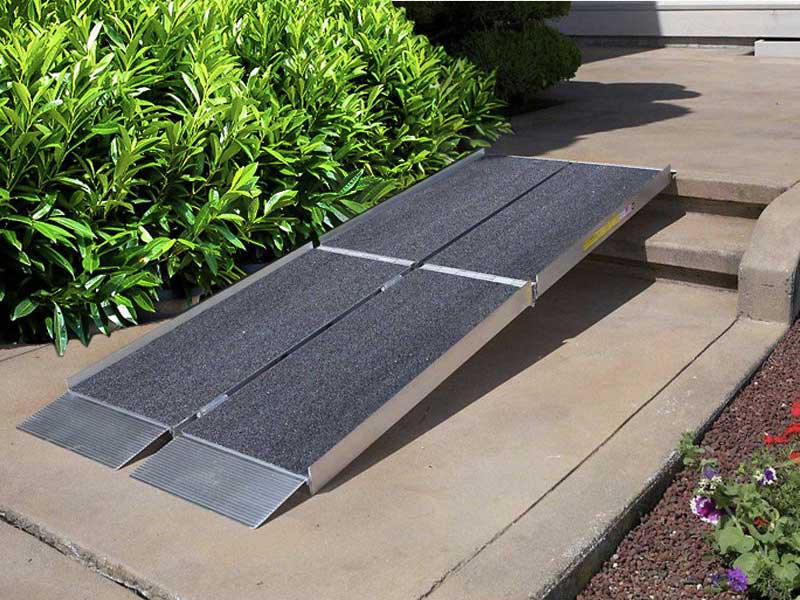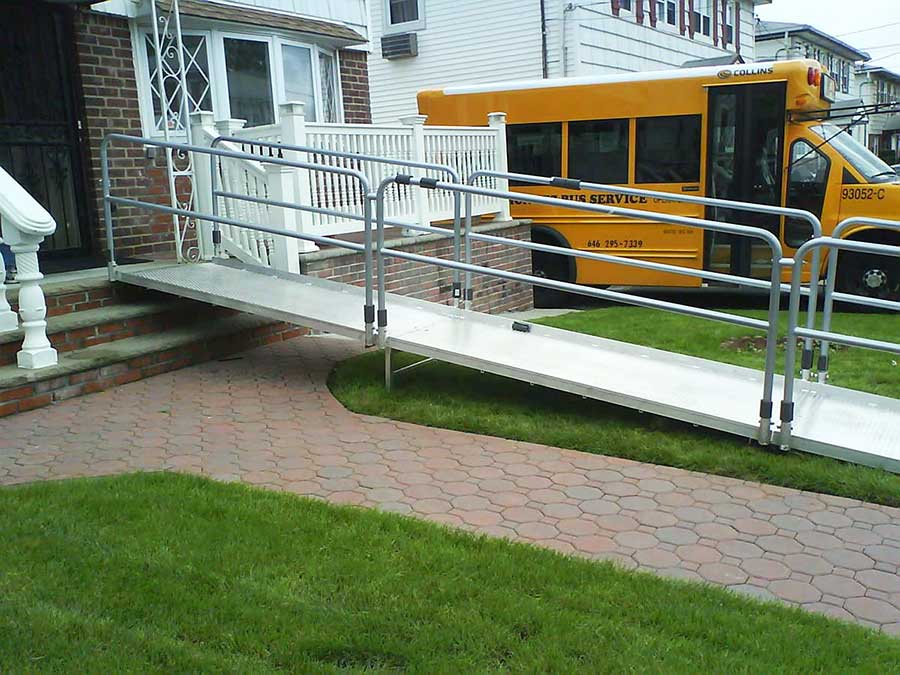Americans with Disabilities Act Ramp Slope
The ADA guidelines provide specific ratios for accessibility ramp measurements that are designed to maximize both accessibility and safety. The ADA requires that all business and public use wheelchair ramps adhere to a 1:12 slope ratio, meaning that for every inch of vertical rise there must be 12 horizontal inches (one foot) of ramp. If, for example, you had a stairway with a vertical rise of 21″, you would need 21′ of ramp. Additionally, ADA stipulates that no ramp can run longer than 30 consecutive feet without a rest or turn platform.
Residential ramp applications are not required to follow the ADA commercial code, but it is suggested that residential ramps adhere to a standard with a slope up to (but not more than) a 2:12 ratio, or one foot of ramp for every 2 inches of vertical rise.
Why the difference? ADA laws are designed to govern public accommodation rather than private. It is up to the homeowner or property owner to maintain a proper ramp incline for guest access.

Calculating the Length of an ADA Compliant Ramp
To calculate the length of an ADA compliant ramp, you start by measuring the total rise in height that must be overcome.
Rise is determined by measuring each stair height, in inches, and adding them together. Example: you have three stairs leading to the front door. Each stair measures 7″ in height – that means your rise is 21″.

Once this calculation is in hand, you simply substitute “feet” for inches, and you’ve got the total length of ramp surface required.
ADA Compliant Portable Ramps
Of course after you’ve correctly calculated the length of the ADA wheelchair ramp required, you need to go about purchasing that ramp!
First, ADA accessibility ramps of 8 feet or less are typically considered portable ramps and can be purchased directly from us or other online stores.

For ramps of up to 10 feet, there are a few in-stock options, including the Handi-Ramp Folding Aluminum Wheelchair Ramp. We also sell this ramp in lengths up to 16 feet and can include handrails at the customer’s request.
In truth, once an ADA ramp length exceeds 12 or 14 feet, you’re really at a length where a modular ramp might make more sense than a portable ramp.
ADA Compliant Modular Ramps
ADA compliant modular ramps offer the ability to mix-and-match ramp components to configure to the length and layout that your unique situations demands. While modular portable ramps aren’t the type of ramp you stow in the back of your SUV, they can be assembled in minutes and are an excellent solution for a semi-permanent or permanent need.
Residential Wheelchair Ramp Codes
As previously suggested, we are unaware of any specific residential codes for the slope of a wheelchair ramp at a residential single-family home. Because building codes are determined locally, you should always search your area for any new wheelchair ramp requirements for non-commercial properties. Nonetheless, we recommend that when purchasing or building a wheelchair ramp that you adhere to a 2:12 ratio that allows for 2″ of rise for every foot of ramp length. This rule-of-thumb ensures that a healthy person who can otherwise manage their own travel in a wheelchair can safely navigate the incline of the ramp by themselves. Similarly, a person in a scooter would have no problem safely using a residential wheelchair ramp with a slope of 2:12.Questions About the Slope of Your Wheelchair Ramp?
The ramp experts at HandiRamp are always ready to answer your questions and to help you determine the best ADA-approved ramp, or residential ramp for your needs.

